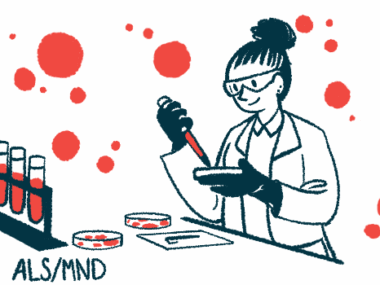£14.5M awarded toward ALS, other neurodegenerative disease projects
The research efforts aim to develop new tests, treatments, devices
Written by |

A partnership between LifeArc and the UK Dementia Research Institute (UK DRI) is awarding £14.5 million (about $18.2 million) to seven research projects aimed at developing new tests, treatments, and devices for neurodegenerative diseases.
“Our partnership with UK DRI allows us to identify and back the most promising translational research with the potential to transform the lives of those with neurodegenerative conditions,” Karen Skinner, LifeArc’s chief project and portfolio officer, said in an organization press release.
More than 1 million people in the U.K. live with conditions such as amyotrophic lateral sclerosis (ALS), frontotemporal dementia (FTD), Alzheimer’s, and Parkinson’s disease.
The selected projects are the first to be funded through the £30 million strategic partnership, which was established in 2022 to leverage UK DRI’s research skills and LifeArc’s translational competencies to advance research in dementia and contribute to bringing laboratory discoveries closer to clinical applications, thereby speeding up the development of new therapies.
“By working together, we reduce risk by further validating opportunities and enhancing appeal to potential future partners, such as pharmaceutical companies, who can subsequently advance these innovations through the clinic and onto the market for those who desperately need them,” Skinner said.
7 projects for ALS, neurodegenerative disease research
ALS is marked by damage to motor neurons, the nerve cells that control voluntary movements. This results in trouble controlling muscles, leading to symptoms such as trouble walking, swallowing, speaking, and breathing.
Patients can also experience mental health, cognitive, and behavioral problems. Up to 20% of people with ALS will develop dementia, which features marked changes in thinking and behavior that affect the ability to perform everyday tasks, increasing the burden for patients and their families.
Among the seven projects receiving funding, three will investigate new treatments for motor neuron diseases, a group that include ALS and feature damage to motor neurons.
One, led by Marc-David Ruepp, PhD, a group leader at the UK DRI center at King’s College London, will investigate a unique gene therapy approach for ALS and FTD, a related condition made up of a group of neurological disorders that affect brain regions typically associated with personality, behavior, and language.
A project led by Adrian Isaacs, PhD, a professor of neurodegenerative disease at UK DRI center at University College London, would develop a small molecular drug target for ALS and FTD.
And a study led by Siddharthan Chandran, PhD, UK DRI’s director and a researcher at the University of Edinburgh, will try to identify new combinations of existing medications to treat motor neuron disease.
Three projects will focus on Alzheimer’s and small vessel disease, and a fourth one hopes to improve care for people with dementia by harnessing digital and computational tools.
“It is fantastic to see such a breadth of high-quality translational research from across many of our [centers] in these projects. These pioneering projects will bring us ever closer to our mission of new treatments for people affected by dementia,” said Kay Penicud, UK DRI’s director of innovation and business.
Neurodegenerative diseases are one of five healthcare areas identified by LifeArc as having a significant unmet patient need. The U.K. medical research charity is investing up to £100m in research on neurodegenerative conditions. UK DRI is the largest single investment in dementia research, operating across seven leading U.K. universities. It works to prevent, treat, and care for people with all types of dementia.






